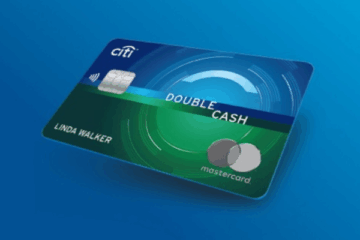How inflation impacts your wallet and top tips for protection
Inflation can subtly reduce your money’s purchasing power, making it challenging to maintain your current lifestyle.
Advertising
This article provides key insights and strategies to safeguard your financial health against inflation.
Advertising
We will explore how inflation impacts loans, savings, and investments and offer actionable advice to protect your assets.
Reduction of Purchasing Power
Inflation can be seen as the continuous increase in the prices of products and services that you use daily.
Advertising
This means that even if your salary remains constant, your purchasing power will decrease as consumer prices rise.
To face this reality, consider:
- Tracking inflation: Stay informed about current inflation rates and project your future expenses.
- Prioritize spending: Focus on basic needs such as food, housing, and health before non-essential expenses.
Increase in Loan Costs

If you have loans or debts with variable interest rates, such as credit cards, you may end up paying more.
As central banks raise interest rates to combat inflation, these rates also tend to rise, increasing the cost of existing loans and making it more expensive to take on new debts.
Impact on Savings and Investments
When it comes to savings and investments, inflation can erode the real value of what you have saved.
To illustrate, if you have a savings account that earns 2% per year, but inflation is at 5%, in reality, you are losing purchasing power.
Diversifying your investments can help protect your savings against inflation.
Effects on the Real Estate Market
Inflation also affects the real estate market. With the general increase in prices, the value of properties tends to rise.
This may seem good for those who already own properties, but it makes it difficult for those trying to enter the market.
Additionally, the costs of mortgage loans may increase, impacting your ability to buy or refinance a home.
Tax Changes
Fiscal policies may adjust in response to inflation. This can include changes in tax brackets, increases in standard deductions, and adjustments in tax benefits.
Staying informed about these changes can help better plan your finances and take advantage of possible tax benefits.
Retirement Planning
Inflation is a crucial consideration in retirement planning. As prices rise, the money saved for retirement will be able to buy less in the future.
It is essential to consider investments that can outpace inflation to maintain your purchasing power in retirement.
Budgeting Needs
Adjusting your budget to effectively manage the impact of inflation is crucial for maintaining financial stability and ensuring that you can still achieve your financial goals despite rising costs.
By taking proactive steps to revise your budget regularly, you can safeguard your financial health against the erosive effects of inflation.
Here’s a step-by-step guide on how to adjust your budgeting needs during periods of high inflation:
- Review Your Current Budget: Begin by analyzing your current budget. Identify all sources of income and list all your expenses, both fixed (like rent and car payments) and variable (like groceries and entertainment). This will give you a clear picture of where your money is going and where you might have flexibility.
- Prioritize Essential Expenses: Inflation often impacts essential items such as food, housing, and healthcare the most. Prioritize these in your budget to ensure that your basic needs are covered without compromise. This may mean allocating a larger portion of your budget to essentials as their costs increase.
- Track Inflation Trends: Keep an eye on how inflation rates are changing. This can help you anticipate changes in prices and adjust your budget accordingly before these changes hit your wallet. For example, if you notice a trend in rising food prices, you can plan to adjust your grocery budget accordingly.
- Reduce Non-Essential Spending: Look at areas where you can cut back without drastically affecting your quality of life. This might include dining out less frequently, cutting back on subscription services, or postponing major purchases that are not urgent.
By taking these steps, you not only manage your money more efficiently during inflationary times but also enhance your financial resilience against future economic fluctuations.
This proactive approach allows you to maintain control over your finances and ensures that inflation does not derail your financial wellbeing.
Governmental and Monetary Policies
Governments and central banks use various tools to control inflation, such as adjusting interest rates and printing money.
Understanding these policies can help you anticipate market changes and adjust your financial strategies accordingly.
Personal Inflation Rate
Each person may be affected by inflation differently, depending on their consumption habits and lifestyle.
Online tools can help calculate your personal inflation rate, offering a clearer view of how to adjust your budget.
Mitigation Strategies
As inflation impacts the economy, adopting proactive measures to safeguard your finances is indispensable.
By investing wisely, diversifying your portfolio, and staying informed about financial news and trends, you can mitigate risks and enhance your financial readiness for any economic conditions.
These strategies aim to fortify your financial future against the unpredictability of inflation.
Protecting yourself against inflation requires a proactive approach. Here are steps you can follow:
- Invest wisely: Consider assets that traditionally outperform inflation, such as real estate and stocks.
- Diversify your portfolio: Don’t put all your eggs in one basket. Diversifying helps mitigate risks.
- Stay informed: Keeping up with financial news and economic trends can provide valuable insights to adjust your strategies in time.
These strategies not only protect your finances against inflation but also contribute to a more robust and prepared financial management for any economic scenario.
By understanding how inflation affects your pocket and implementing the right strategies, you can better protect yourself against negative impacts and maintain your financial health in the long term.
Stay informed, adaptive, and proactive about your money, and you will be in a much better position to face inflation and other economic challenges that may arise.





